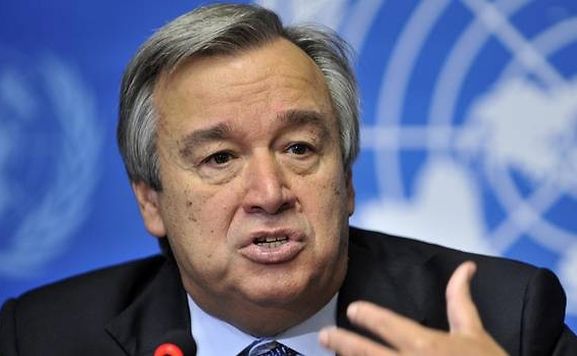Antonio Gutteres Set to be Named UN Secretary General
While the presidential election has captured the attention of American voters in a reality TV show-like fashion, there is another election of global proportions happening this week. On Tuesday, the United Nations Security Council voted for Antonio Guterres to replace United Nation Secretary General Ban Ki Moon. Gutteres is the former Prime Minister of Portugal and former United Nations High Commissioner for Refugees. After formally nominating Gutteres, the Security Council sent their recommendation to the General Assembly suggesting the 193-member General Assembly appoint him for five years. Pending approval by the General Assembly, which meets next week, Guterres will replace Ban Ki Moon on January 1st. Ban Ki Moon hailed Antonio Gutteres his successor as a “superb choice.”
Moon, who has served two terms as Secretary General, will leave behind a lackluster legacy. Appointed Secretary General in 2007, Ban Ki Moon succeeded Kofi Anan. Shortly after taking post on the 38th floor of the United Nations, Ban Ki Moon would have to learn to lead by live fire exercise as the global landscape dramatically shifted in what would feel like overnight. Global issues, such as the Great Recession, the rising threat of the Islamic State, and volatile civil protests in the Arab world, continued to test Ban Ki Moon’s diplomatic and leadership skills.
Ban Ki Moon’s time as Secretary General will largely be remembered as unsuccessful, and he will join a growing list of Secretary Generals who have left bland legacies. Short of last year, when Moon oversaw a global climate-change agreement, he has accomplished little during his two terms. Ban Ki Moon struggled during his time at the UN largely in part due to his inability to communicate effectively and his aloof image. At first blush, this may seem like a harsh criticism of a man whose entire job is essentially to keep world peace and promote international cooperation. Short of Dag Hammarskjold, there has yet to be another Secretary General who has left their post at the UN with a glowing legacy. Elected in 1953, Hammarskjold served as the second Secretary General and oversaw the UN during the Cold War, before dying in a plane crash in 1961 while trying to end the first of post-independence Congo’s horrors. Looking ahead to Ban Ki Moon’s successor, Antonio Gutteres provides the organization promise and the world renewed hope for a statesman who can solve the largest humanitarian crisis – refugees.
The refugee crisis is at an all time high, with over 65 million refugees in the world, and the choice of Gutteres by the Security Council is a way for the world’s largest inter-governmental body to tell the world that the refugee crisis their top priority. Recommending Gutteres, the former head of UNCHR, shows that the United Nation is commitment to handling the growing migrant and refugee emergency while cementing the organization’s role as international relations leader.
As unsexy as this election is, the appointment of a new Secretary General of the United Nations is an important one in a time of growing anti-refugee sentiment across the globe, and it is apparent, Gutteres has his work cut out for him. On a global scale, when Ban Ki Moon hands the baton to his successor, Gutteres’ first task will be to tackle the worst humanitarian crisis since the Second World War while at the same time seeking to reduce the number of global conflicts. (We’re looking at you, Syria and Yemen.) It is often easy to forget the issues plaguing nations outside of American borders, especially during an election cycle. The next Secretary General of the United Nations is of equal importance as to who will occupy the White House in January. After all, the next POTUS will be working alongside of Antony Gutteres and, in a world of diplomacy and negotiations, it is of utmost importance for voters choose to their commander in chief based on who will play nice with a man determined for world peace.
Originally written for and published on Political Storm

